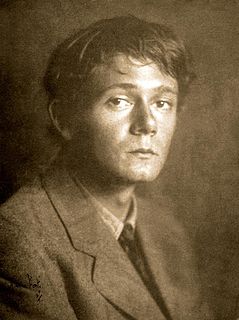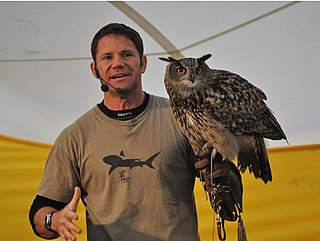A Quote by Clark Ashton Smith
There have been times when only a hair's-breadth has intervened betwixt myself and the seething devil-ridden world of madness; for the hideous knowledge, the horror- blackened memories which I have carried so long, were never meant to be borne by the human intellect.
Related Quotes
?"Intellect is the knowledge obtained by experience of names and forms; wisdom is the knowledge which manifests only from the inner being; to acquire intellect one must delve into studies, but to obtain wisdom, nothing but the flow of divine mercy is needed; it is as natural as the instinct of swimming to the fish, or of flying to the bird. Intellect is the sight which enables one to see through the external world, but the light of wisdom enables one to see through the external into the internal world.
There are many trials in life which do not seem to come from unwisdom or folly; they are silver arrows shot from the bow of God, and fixed inextricably in the quivering heart - they are meant to be borne - they were not meant, like snow or water, to melt as soon as they strike; but the moment an ill can be patiently borne it is disarmed of its poison, though not of its pain.
The difference between God and the devil is in nothing except in unselfishness and selfishness. The devil knows as much as God, is as powerful as God; only he has no holiness that makes him a devil. Apply the same idea to the modern world: excess of knowledge and power, without holiness, makes human beings devils.
Engaged in a fiery dance, their bodies were linked and seperated by the flashing blades. At times they nearly touched, taut skin only a hair's breadth away, but then momentum would whirl them apart, and they would withdraw for a second, only to join again. Their sinuous forms wove together like twisting ropes of windblown smoke.
He should have known better because, early in his learnings under his brother Mahmoud, he had discovered that long human words (the longer the better) were easy, unmistakable, and rarely changed their meanings, but short words were slippery, unpredictable changing their meanings without any pattern. Or so he seemed to grok. Short human words were never like a short Martian word - such as grok which forever meant exactly the same thing. Short human words were like trying to lift water with a knife. And this had been a very short word.
The process of inner self-examination brings about a knowledge that is as rigorous and supported by evidence as anything science has to offer. At the same time, this point of view redefines faith as a knowledge that is attained not only by intellectual means, but also through the rigorous development of the emotional side of the human psyche. Such emotional knowledge is unknown to the isolated intellect and has therefore been mistakenly labeled as "irrational."
The devil has been painted swarthy, cloven-footed, horned, and hideous. Do we expect to see him in that shape? O, surely it would be better for us, if he did come in that shape! The trouble is the devil never does come in that shape. He comes by chance, with unregistered signals, and in all sorts of counterfeit presentiments.
I could not help feeling that they were evil things-- mountains of madness whose farther slopes looked out over some accursed ultimate abyss. That seething , half-luminous cloud-background held ineffable suggestions of a vague, ethereal beyondness far more than terrestrially spatial; and gave appalling reminders of the utter remoteness, separateness, desolation, and aeon-long death of this untrodden and unfathomed austral world.
And how we become like our parents! How their scorned advice - based, we felt in our superiority, on prejudices and muddled folk wisdom - how their opinions are subsequently borne out by our own discoveries and sense of the world, one after one. And as this happens, we realise with increasing horror that proposition which we would never have entertained before: our mothers were right!
Adolescence has been recognised as a stage of human development since medieval times--long, long before the industrial revolution--and, as it is now, has long been seen as a phase which centers on the fusion of sexual and social maturity. Indeed, adolescence as a concept has as long a history as that of puberty, which is sometimes considered more concrete, and hence much easier to name and to recognize.







































